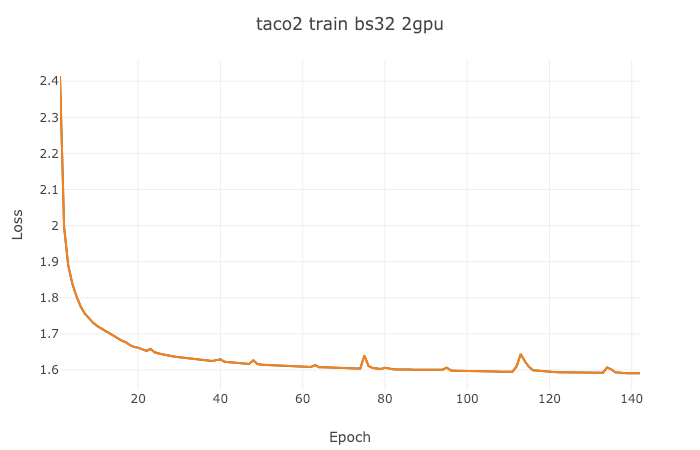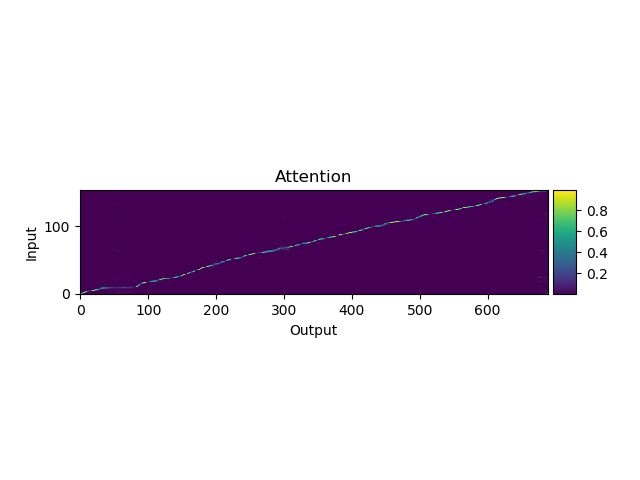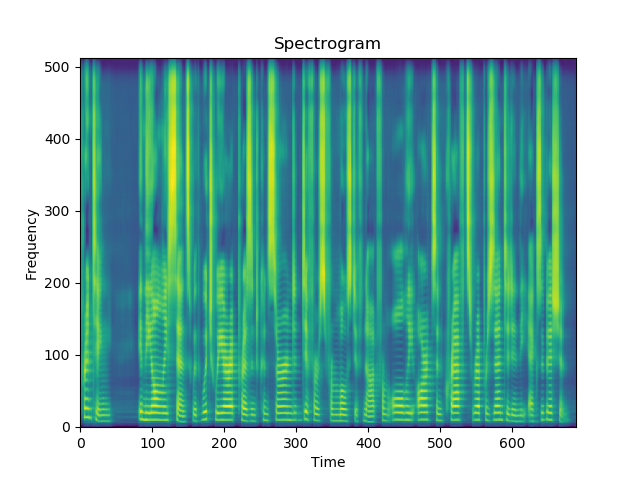A PyTorch implementation of Tacotron2, described in Natural TTS Synthesis By Conditioning Wavenet On Mel Spectrogram Predictions, an end-to-end text-to-speech(TTS) neural network architecture, which directly converts character text sequence to speech.
- Python3.6+ (Recommend Anaconda)
- PyTorch 0.4.1+
pip install -r requirements.txt- If you want to run
egs/ljspeech/run.sh, download LJ Speech Dataset for free.
$ cd egs/ljspeech
# Modify wav_dir to your LJ Speech dir
$ bash run.shThat's all.
You can change parameter by $ bash run.sh --parameter_name parameter_value, egs, $ bash run.sh --stage 2. See parameter name in egs/ljspeech/run.sh before . utils/parse_options.sh.
Workflow of egs/ljspeech/run.sh:
- Stage 1: Training
- Stage 2: Synthesising
egs/ljspeech/run.sh provide example usage.
# Set PATH and PYTHONPATH
$ cd egs/ljspeech/; . ./path.sh
# Train:
$ train.py -h
# Synthesis audio:
$ synthesis.py -hIf you want to visualize your loss, you can use visdom to do that:
- Open a new terminal in your remote server (recommend tmux) and run
$ visdom - Open a new terminal and run
$ bash run.sh --visdom 1 --visdom_id "<any-string>"or$ train.py ... --visdom 1 --vidsdom_id "<any-string>" - Open your browser and type
<your-remote-server-ip>:8097, egs,127.0.0.1:8097 - In visdom website, chose
<any-string>inEnvironmentto see your loss
$ bash run.sh --continue_from <model-path>Use comma separated gpu-id sequence, such as:
$ bash run.sh --id "0,1"- When happened in training, try to reduce
batch_sizeor use more GPU.$ bash run.sh --batch_size <lower-value>or$ bash run.sh --id "0,1".
- https://github.com/NVIDIA/tacotron2
- https://github.com/A-Jacobson/tacotron2
- https://github.com/Rayhane-mamah/Tacotron-2
This is a work in progress and any contribution is welcome (dev branch is main development branch).
I implement feature prediction network + Griffin-Lim to synthesis speech now.

